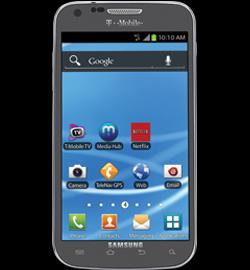A San Francisco entrepreneur is trying to get the Obama administration to overturn a stupid anticonsumer law that protects cell phone makers and phone companies.
Sina Khanifar, co-founder of opensignal, has collected more than 80,000 signatures on a White House petition calling for a restoration of the right to “unlock” a cell phone — that is, to alter its programming so it can be used on a different carrier’s network.
It is, Khanifar told me, a fairly simple issue: If I buy a cell phone, it ought to be mine to use as I wish — and if that includes taking it apart, rewiring it, or changing the programming, that’s my business.
As he notes:
Intuitively we understand that once we’ve purchased a product it’s up to us how we use or modify it. Replacing the hard drive on a Macbook may invalidate our warranty, but it isn’t, and shouldn’t be, illegal.
But under a recent ruling by the Library of Congress, which oversees parts of the Digital Millenium Copyright Act, cell phone companies have the right to demand exclusive use of the devices.
That means when you buy a phone from, say, Sprint, it comes with a code that ensures it will work only on Sprint’s network. You can’t take that same phone and move your account to, say, Verizon or AT&T; you’d have to buy a new phone.
Khanifar has made something of a business out of resetting phones to work on other networks, which is particularly useful for people who are moving or travelling out of the country, where it often costs a fortune to use a US cell phone. Several years ago, Motorola tried to sue him — but with the help of a pro bono lawyer, he was able to beat the giant company back.
But the new rules mean someone who tries to change the code on a device he or she legally owns can be subject to as much as five years in prison and a $500,000 fine.
Cell phone companies say the law is needed to protect their interests; after all, that smart phone you bought for $99 when you signed a contract with your carrier actually retails for about $700. You get the discount by signing a contract to use the company’s network for a period of time, typically two years.
But Khanifar says — correctly — that those contracts already include hefty cancellation fees that more than cover the investment the company made in giving you a discounted phone.
In other words, he says, this is a corporate giveaway that undermines consumer rights. Ultimately, it will take an act of Congress to change the rules, and so far, only one member, Rep. Peter DeFazio (D-Oregon) has shown any interest. “But right now, we’re just trying to get this on the administration’s radar,” Khanifar said.
He needs 100,000 signatures to get an official White House response, and the deadline is Feb. 23. Sign up.

